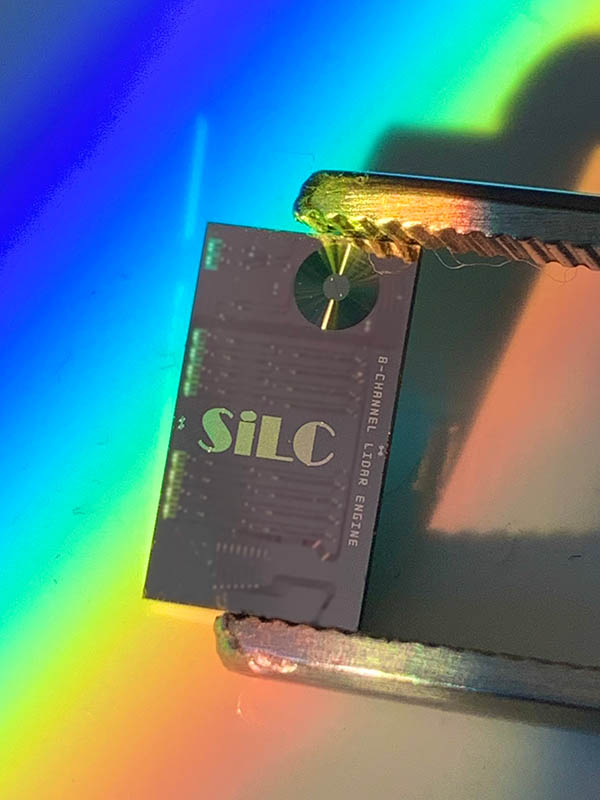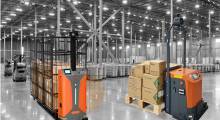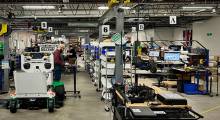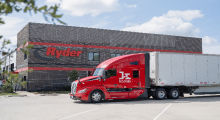As fleets of robotic taxicabs grow around the world, automotive technology developers are partnering with sensor providers to scale up. SiLC Technologies Inc. today announced that AutoX Inc. has chosen its Eyeonic Vision Sensor for its robotaxi fleet. SiLC said its lidar sensors provide accurate depth, instantaneous velocity, and dual-polarization intensity.
“At AutoX, we are laser-focused on, and fully committed to, our mission of democratizing autonomy—to accelerate the advent of fully driverless cars,” stated Jianxiong Xiao, a.k.a. “Professor X,” founder and CEO of AutoX. “We’re excited to work with the world’s leading 4D lidar chip supplier. Together, we are building safer transportation and bettering lives for the world.”
AutoX claimed that it is the first and currently only company in China operating a robotaxi service on public roads without a safety driver. The Shenzhen, China-based company has five research and development centers globally and is operating in Shenzhen, Guangzhou, Shanghai, and Beijing. It also has a robotaxi permit in California and U.S. offices in San Jose, Calif.
SiLC develops FMCW lidar for ease of integration
Silicon photonics industry veterans with decades of commercial product development and manufacturing experience founded SiLC Technologies in 2018. The Monrovia, Calif.-based company has been developing frequency-modulated, continuous-wave (FMCW) lidar systems.
It said its “4D+ Eyeonic Chip integrates all photonics functions needed to enable a coherent vision sensor, offering a tiny footprint while addressing the need for low cost and low power.” SiLC's Eyeonic Vision Sensor, announced in December 2021, is an FMCW lidar transceiver that the company said is the first of its kind.
“It integrates lasers, wave guides, and a semi-amplifier, where others need four chips,” said Ralf Muenster, vice president of business development and marketing. “There's a completely fiberless version, as well as a fiber version, based on customer demand.”
“We decided we could design the boards faster ourselves and then give them to customers to integrate. We reduced the size of the vision sensor 100x from the box of two years ago,” he told Robotics 24/7. “In addition, the four-channel module enables a high number of points per second, for instantaneous velocity to every voxel.”
“Most lidar companies are currently focusing on ToF, but none other than SiLC has tackled the chip integration problem,” Muenster said. “It's the only way to bring costs down. We do it on the silicon, and SiLC's founders have been commercializing silicon photonics for more than 25 years.”
SiLC FMCW lidar offers range, accuracy
“In addition to being the only fully chip-integrated solution on the market, SiLC also has demonstrated the longest-range FMCW lidar operation,” said Dr. Mehdi Asghari, founder and CEO of SiLC. “This and the combination of precision velocity enables a vastly simplified and lower-latency perception stack. We’re pleased to partner with AutoX, a company dedicated to improving the safety and performance of autonomous vehicles.”

Muenster explained: “Autonomous vehicles need to perceive objects up to 500 m [1,640.4 ft.] out for safety. With time-of-flight [ToF] and 3D cameras, you need to get pixels at distance to get volume information, which is important for object identification. Cameras are only so good at perceiving objects, and radar is typically blocky or has poor resolution.”
“In addition to 4D information, we provide polarization information, which is good for material identification,” he said. “We can do single-frame perception, classification, and prediction, plus velocity.”
Frost & Sullivan said SiLC's 4D lidar chip is “ideally positioned to disrupt the global lidar market,” and Gartner Inc. named the company a “Cool Vendor in Silicon Photonics.” Investors in SiLC include Dell Technology Capital, Sony Innovation Fund by IGV, FLUXUNIT – ams OSRAM Ventures, UMC Capital, Alter Ventures, and Epson.
AutoX to use sensors as it scales robotaxi fleet
AutoX said its self-driving platform is capable of handling the most challenging and dynamic traffic scenarios in cities around the world. The company recently announced that its robotaxi fleet has grown to more than 1,000 autonomous vehicles.
SiLC said its silicon photonic chip is ready for manufacturers to integrate into the next generation of autonomous vehicles, security systems, and industrial robots.
AutoX said it will use SiLC’s Eyeonic Vision sensor in vehicles this year “to deliver highly detailed and accurate instantaneous velocity and ultra-long-range information to augment other sensors in its proprietary hardware stack.”
Earlier this year, AutoX unveiled what it described as Asia’s first automated production facility dedicated to equipping and scaling its SAE Level 4 fleet.
About the Author
Follow Robotics 24/7 on Linkedin
Article topics
Email Sign Up
















